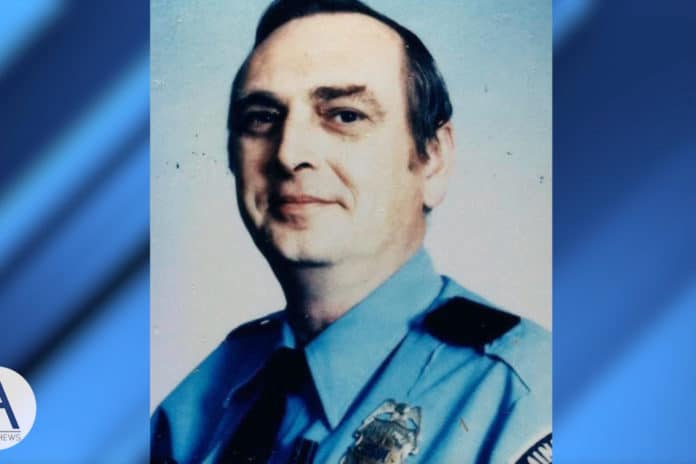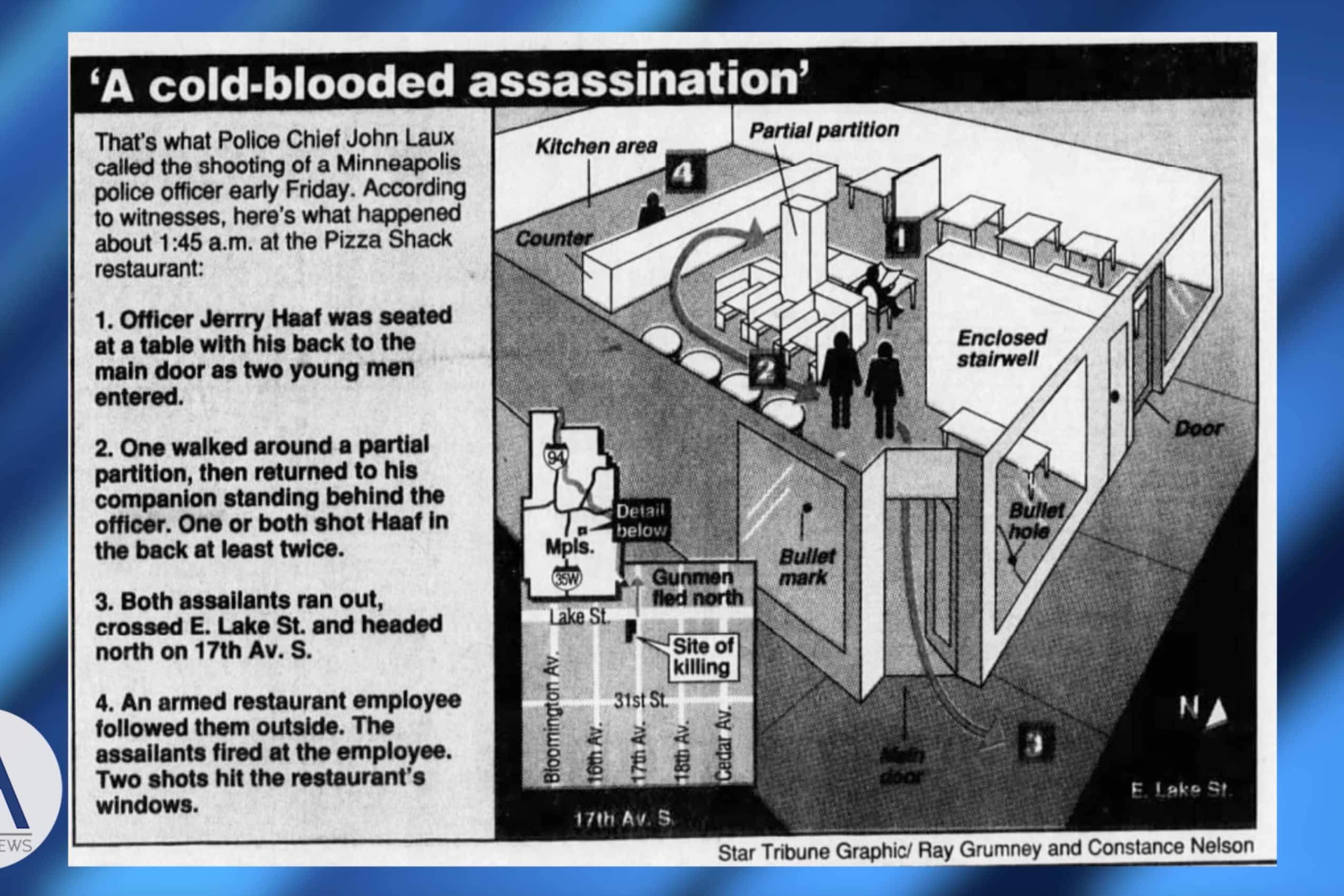
It’s been 30 years since Minneapolis police officer Jerry Haaf was ambushed and executed while on the job. Now, his killers are being considered for parole.
Haaf’s daughter Cindy Benson is speaking out to voice her family’s wish that the killers remain behind bars and asking the public to write letters to the Department of Corrections.
Benson joined Liz Collin on her podcast to talk about her father’s death and what has, and hasn’t, changed in Minneapolis over the last 30 years.
“This was a purposely done execution,” Benson said.
Haaf was working an overnight shift and taking his break at around 2 a.m. at a local pizza place frequented by police when two gang members walked in and shot him several times in the back. Haaf died two hours later at the hospital. His Sept. 25, 1992 death came just three months before his retirement.
Four Vice Lords gang members were later arrested and convicted for the crime.
“The suspects knew police frequented the Pizza Shack and went there with the intention to kill an officer, any officer. The shooting was a result of growing tension between police and the street gang, the Vice Lords,” the Minneapolis Police Department said in a 2021 tribute to Haaf.

Benson said at the time the murder was framed as a “racial issue.”
“They kept saying it was a racial issue, a thing about color. And it’s true, it was about color, but it wasn’t black and white — he was simply shot because of the color of his shirt. He was shot because he was a cop. He wore a blue shirt,” Benson said.
Haaf’s murder killed an effort by city officials to orchestrate peace talks between rival gangs, Benson said. One of the faces of this movement was Sharif Willis, a member of the Vice Lords whom police have long suspected of having a role in Haaf’s death.
Benson referenced Attorney General Keith Ellison’s ties to Willis, who was never charged in connection to Haaf’s execution. However, two people, including one of Haaf’s killers, testified at trial that Willis “ordered and planned” the murder, according to the Pioneer Press. Willis’ nephew was sent to prison for his role as a getaway driver. Willis denied any involvement in a 2019 interview with the Star Tribune.
Ellison spoke at a rally organized by Willis after Haaf was killed and later represented him in a case where he held 12 people at gunpoint in a Minneapolis gas station.
Benson said she believes Ellison “hasn’t changed inside” since his time as a defense attorney.
She said it has been “disheartening” to see police officers like Kim Potter stand trial.
Now, Mwati “Pepi” McKenzie is up for parole in November. Shannon Bowles will also be eligible for parole soon, though Benson said she hasn’t received an official date yet. They “both were the triggermen,” she said.
“[McKenzie’s] never apologized to us or the community,” Benson continued. “He’s always said he turned himself in because he was not involved … now they dangle parole and he says, ‘Well, oh yeah, something bad happened. I’m trying to make up for it.’ Which is it?”
“In Minnesota, when you’re sentenced to life, it’s not life,” she added. “We were sentenced to life. We’ll never get our father back.”
Under a law passed after Haaf’s death, convicted cop killers are sentenced to life without parole.
Benson is urging the public to write letters to the Department of Corrections in opposition to parole for the criminals who killed Haaf.
“It’s as simple as asking the commissioner and the parole board to deny the petition for release,” she said. “We’re asking for the public’s help to keep the killers in jail.”
LISTEN:
















